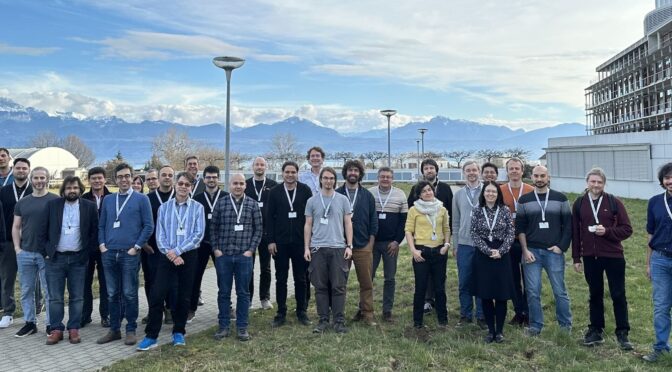Objectives:
The aim of the school was to give a comprehensive introduction to the theoretical and practical aspects of the electronic excitations that are probed by experimental techniques such as optical absorption, EELS and photoemission (direct or inverse). From a theoretical perspective, excitations and excited state properties are out of the reach of density-functional theory (DFT), which is a ground-state theory. Over the past three decades, alternative ab-initio theories and frameworks capable of describing electronic excitations and spectroscopy, have gained popularity including time-dependent density-functional theory (TDDFT) and many-body perturbation theory (MBPT) or Green’s function theory (GW approximation and Bethe-Salpeter equation BSE). In fact, computational solutions and codes have been developed to implement these theories and to provide tools to calculate excited state properties. The present school focused on these points, covering theoretical, practical, and also numerical aspects of TDDFT and MBPT, non-linear response and real-time spectroscopies. Additionally, the school provided valuable insights from an experimental perspective on spectroscopies and magnetic excitations, rarely covered in similar events. Finally, a large part of the school was devoted to getting familiar with the codes that implement such theories (ABINIT, 2Light, Lumen, DP, and EXC). Continue reading Report for Theoretical Spectroscopy Lectures 2024
Monthly Archives: April 2024
CECAM Flagship Workshop: Electronic Structure Software Development: Advancing the Modular Paradigm
CECAM Flagship Workshop: Electronic Structure Software Development: Advancing the Modular Paradigm
Held at CECAM-HQ, EPFL, Lausanne, February 19-24, 2024
This workshop continues the successful trajectory of the CECAM Electronic Structure Library initiative, aimed at supporting and connecting developers of shared libraries and software tools in support of electronic structure simulations across our entire community. As always, CECAM’s professionalism and remarkable organization, as well as their truly welcoming hospitality, deserve the highest praise.
Background
Shared computational libraries that provide key functionality are now firmly established parts of the electronic structure software ecosystem. As electronic structure methods and codes diversify and mature, the development of libraries strengthens collaborations and avoids reimplementing the same methods in the context of a different, monolithic code. Over the years, a modular paradigm has emerged in which central pieces can be shared and reused between different projects. Continue reading CECAM Flagship Workshop: Electronic Structure Software Development: Advancing the Modular Paradigm

